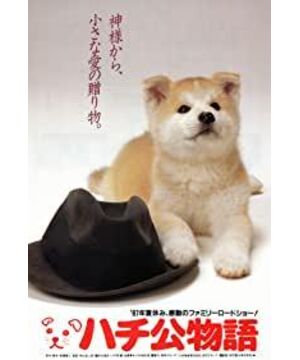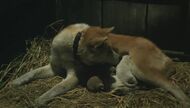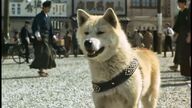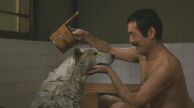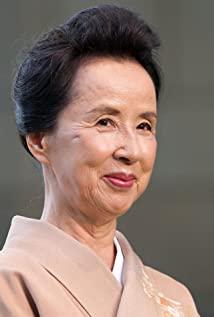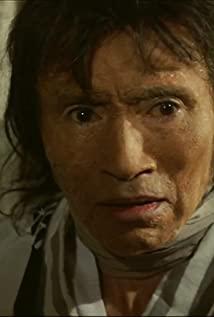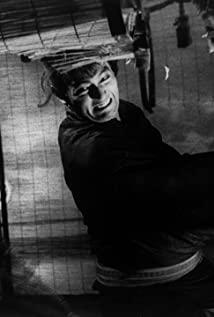In general, the Japanese version is more simple than the American version, and the storytelling is also very bland. It is not as tearful as the American version without some peaks and mountains, but the expression of the feelings for the Professor Abahe family is more direct to the heart. So personally, I prefer the Japanese version. Maybe Asians are more restrained in expressing their emotions, so the Japanese version can empathize more. The emotions in the American version are too hot and too strong, and the sad music makes people dare not watch it again. The film is based on a true story. Hachi was born in Akita Prefecture in the winter of 1923 and sent to the home of Professor Ueno in Tokyo in the spring of 1924. On April 21, 1925, the professor died of a heart attack at school. Rain or shine, he has been waiting for the owner to return at the entrance of Shibuya Station in Tokyo. In April 1934, a bronze statue was erected for Hachi in front of Shibuya Station in Tokyo. The station entrance near the statue is called "Hachiko entrance". During World War II, due to the shortage of metal resources, Hachiko's bronze statue was melted down. The bronze statue built on the original site was rebuilt in August 1947. In March 1935, Hachiko died of heart filariasis at the age of 11. Keeping a dog for three days is a lifelong loyalty. Professor Ueno is a dog lover, or more precisely, a person who loves animals. The serious and polite image of the first debut was completely broken by the whisper of "the frog is singing". At that time, I thought this was an interesting soul. , The contrast with the appearance is very captivating. Only such people will seriously discuss with their families that dogs also have their rights. Mrs. Ueno is gentle and virtuous. While pampering her husband, she has her own principles of doing things, not kitsch or anger. The only daughter Qianhezi is a person surrounded by love, kind and lovely, but she is used to being loved, almost ruthless. I have always believed that movies are made for people to see. No matter what the genre is, it is still about human beings. The Japanese version actually reflects the problems that existed in Japanese society and people at that time from Aba. For example, the professor loves dogs almost crazy, takes a bath with the dog, sleeps with the dog in his arms, and his daughter brings her grandson over to visit, regardless of whether she is dedicated to catching lice for Ah Ba. The reason should be that there is nowhere to cast emotions. The only daughter who has devoted half her life to her love is pregnant without saying a word, and she doesn't look back when she leaves home. Although she is not a father, she can still feel the bitterness in her heart. what is love? It is nothing more than giving and being given. Love is mutual. Human beings are emotional animals, and feelings are indispensable. When you are young, you long for love. The professor loves dogs because dogs always respond to his love, which is a blessing for someone who just lost a daughter. Another example is whether Qianhezi is alluding to some only children and "dog lovers" today. , but it showed it most vividly in her. The scene that touched me in the middle was: the professor's funeral was terribly quiet, only Ah Ba kept barking, the professor's wife was crying, and Qianhezi was pretending to be dead. After the professor's death, Ah Ba tasted the warmth and coldness of the world, was sent away, ran back, was sent away, and ran back again... It was easy to say, but it took nine springs and autumns. At first, the staff near the train station would laugh and say, what a stupid dog, who didn't even know the owner was dead. Enthusiastic as Ju Saburo, a man who doesn't love dogs is convinced by Ah Ba and takes in a homeless dog. Unexpectedly, the world is unpredictable and people's death is so sudden. The owner and his wife of the stall next to the station have also been paying attention to Aba. They are like Aba's second owner and silently accompany him. Maybe they see themselves in Aba and stick to some things that outsiders seem to be foolish, so the boss Hearing a guest humiliating Aba is like humiliating himself. People who don't understand will never understand. When he sees the boss fighting with the guest, he can't help but applaud! There are traces of the indifference and expulsion that Aba encountered. At a time when the whole people were preparing for war, supplies were in short supply, everyone was in danger, and it was not easy to survive, so what about raising a dog. That's exactly what happened. Ah Ba will never meet someone who is sincere to him and can take him in. The wheels of history have run over him, and the thirsty fish in the ruts are just a drop in the ocean. At the end of the movie, Ah Ba's corpse is lying at the entrance of the station, no one cares about it. Maybe some people know its story, and some people have taken photos with it, but for him, death is a lack of talk after dinner. I hope the world There really is heaven. , but it showed it most vividly in her. The scene that touched me in the middle was: the professor's funeral was terribly quiet, only Ah Ba kept barking, the professor's wife was crying, and Qianhezi was pretending to be dead. After the professor's death, Ah Ba tasted the warmth and coldness of the world, was sent away, ran back, was sent away, and ran back again... It was easy to say, but it took nine springs and autumns. At first, the staff near the train station would laugh and say, what a stupid dog, who didn't even know the owner was dead. Enthusiastic as Ju Saburo, a man who doesn't love dogs is convinced by Ah Ba and takes in a homeless dog. Unexpectedly, the world is unpredictable and people's death is so sudden. The owner and his wife of the stall next to the station have also been paying attention to Aba. They are like Aba's second owner and silently accompany him. Maybe they see themselves in Aba and stick to some things that outsiders seem to be foolish, so the boss Hearing a guest humiliating Aba is like humiliating himself. People who don't understand will never understand. When he sees the boss fighting with the guest, he can't help but applaud! There are traces of the indifference and expulsion that Aba encountered. At a time when the whole people were preparing for war, supplies were in short supply, everyone was in danger, and it was not easy to survive, so what about raising a dog. That's exactly what happened. Ah Ba will never meet someone who is sincere to him and can take him in. The wheels of history have run over him, and the thirsty fish in the ruts are just a drop in the ocean. At the end of the movie, Ah Ba's corpse is lying at the entrance of the station, no one cares about it. Maybe some people know its story, and some people have taken photos with it, but for him, death is a lack of talk after dinner. I hope the world There really is heaven. It can be followed, at a time when the whole people are preparing for war, materials are in short supply, everyone is in danger, and it is not easy to live, how can you talk about raising a dog. That's exactly what happened. Ah Ba will never meet someone who is sincere to him and can take him in. The wheels of history have run over him, and the thirsty fish in the ruts are just a drop in the ocean. At the end of the movie, Ah Ba's corpse is lying at the entrance of the station, no one cares about it. Maybe some people know its story, and some people have taken photos with it, but for him, death is a lack of talk after dinner. I hope the world There really is heaven. It can be followed, at a time when the whole people are preparing for war, materials are in short supply, everyone is in danger, and it is not easy to live, how can you talk about raising a dog. That's exactly what happened. Ah Ba will never meet someone who is sincere to him and can take him in. The wheels of history have run over him, and the thirsty fish in the ruts are just a drop in the ocean. At the end of the movie, Ah Ba's corpse is lying at the entrance of the station, no one cares about it. Maybe some people know its story, and some people have taken photos with it, but for him, death is a lack of talk after dinner. I hope the world There really is heaven.
View more about Hachi-ko reviews


